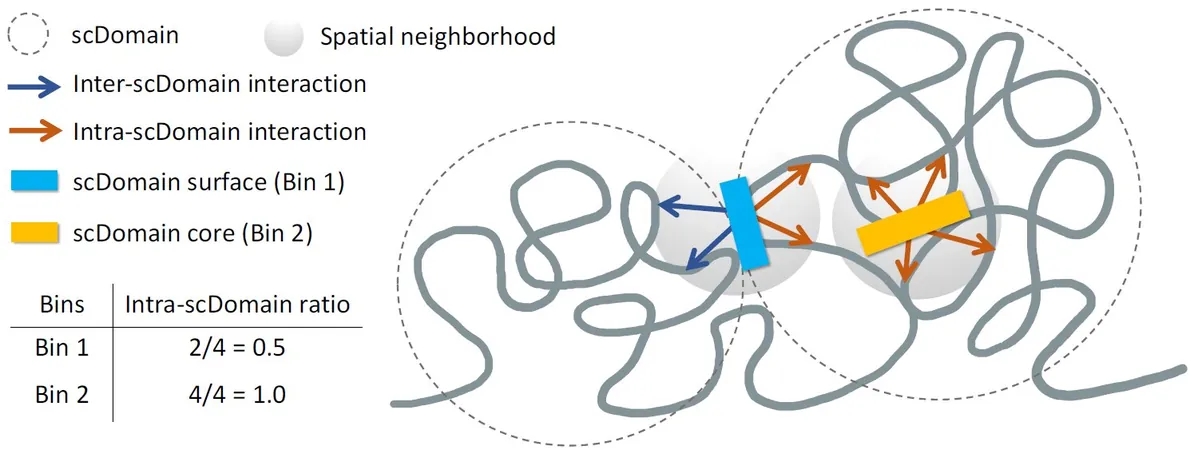
Groundbreaking Mental Health Program Empowers Zambian Mothers and Transforms Lives!
2024-11-06
Author: Ming
A Revolutionary Initiative
A revolutionary study conducted by Swiss TPH and its esteemed partners has unveiled a locally adapted mental health initiative specifically designed for women with young children in Zambia. The results are astounding: the intervention has led to a staggering 50% reduction in mental health symptoms among participants! But that’s not all—it has also empowered these women, strengthening their relationships with their children and positively impacting their economic situations.
Significance of the Study
Published recently in *The Lancet Psychiatry*, this pivotal research marks a major breakthrough in addressing maternal mental health in sub-Saharan Africa, a region where evidence-based interventions for young mothers are sorely lacking. With mental health disorders like depression and anxiety continuing to rise globally, the study highlights the urgent need for targeted solutions, particularly for low-income households that are disproportionately affected.
Challenges Faced by Zambian Mothers
A shocking 1 in 4 mothers in Zambia grapples with high levels of mental distress, frequently exacerbated by challenges such as food insecurity, a lack of stable income and housing, and debilitating gender-based violence. These issues are compounded by a severe shortage of trained mental health professionals and a dearth of culturally relevant psychosocial interventions, making it increasingly difficult for health systems to provide necessary services to vulnerable populations.
The Intervention Design
In a proactive response, the Swiss TPH team crafted a groundbreaking intervention aimed at mothers with children aged five and under. This program was meticulously designed after extensive collaboration with community leaders, policymakers, and mental health providers in Zambia, ensuring it truly resonates with the local culture.
Why This Matters: The Intervention That Works
Rooted in the World Health Organization’s (WHO) *Problem Management Plus*, the intervention combines psychoeducation, problem-solving skills, and relaxation techniques to address the unique challenges faced by Zambian mothers. Delivered by trained community health workers without clinical backgrounds, this approach maximizes accessibility and effectiveness. A total of 265 women participated, engaging in ten sessions either in-person or via phone. These sessions offered hands-on exercises such as breathing techniques, coping strategies, and education on child development and self-care.
Outcomes of the Intervention
The results? Remarkable! With 80% of participants completing the program and 90% expressing high satisfaction, the intervention demonstrated undeniable effectiveness. Most notably, the six-month follow-up revealed an impressive 50% reduction in mental health symptoms.
Expert Commentary
“This study clearly illustrates that culturally adapted psychosocial interventions, when executed by trained community health workers, have the extraordinary potential to alleviate mental distress among women with young children in low- and middle-income countries,” remarks Günther Fink, the Head of the Household Economics and Health Systems Research unit at Swiss TPH.
Beyond Mental Health: The Ripple Effect
The positive impacts extend further than just mental well-being. Participants reported improved relationships with their children, and many have begun to experience economic uplift by starting small businesses or selling home-grown produce, thanks to the valuable problem-solving skills they acquired during the program.
Conclusion and Future Directions
Irene Falgas-Bague, the project leader and senior author of the publication, added, “These extraordinary results highlight the broader potential of this intervention to foster resilience within families and communities."
This study is a pivotal moment for global mental health efforts, especially within low- and middle-income countries. The success of this intervention serves as a beacon of hope, suggesting it could be adapted and implemented across other sub-Saharan African nations, thereby offering a scalable solution to a critical global health challenge.
However, the journey doesn't end here. Further research is essential to gauge the long-term effects on both mothers and their children and to explore the integration of this revolutionary program into standard health services.
In a world where mental health continues to be an overlooked issue, Zambia's stunning progress could pave the way for transformative solutions that uplift not just individuals, but entire communities. Stay tuned as we follow the evolution of this important initiative!




 Brasil (PT)
Brasil (PT)
 Canada (EN)
Canada (EN)
 Chile (ES)
Chile (ES)
 Česko (CS)
Česko (CS)
 대한민국 (KO)
대한민국 (KO)
 España (ES)
España (ES)
 France (FR)
France (FR)
 Hong Kong (EN)
Hong Kong (EN)
 Italia (IT)
Italia (IT)
 日本 (JA)
日本 (JA)
 Magyarország (HU)
Magyarország (HU)
 Norge (NO)
Norge (NO)
 Polska (PL)
Polska (PL)
 Schweiz (DE)
Schweiz (DE)
 Singapore (EN)
Singapore (EN)
 Sverige (SV)
Sverige (SV)
 Suomi (FI)
Suomi (FI)
 Türkiye (TR)
Türkiye (TR)
 الإمارات العربية المتحدة (AR)
الإمارات العربية المتحدة (AR)